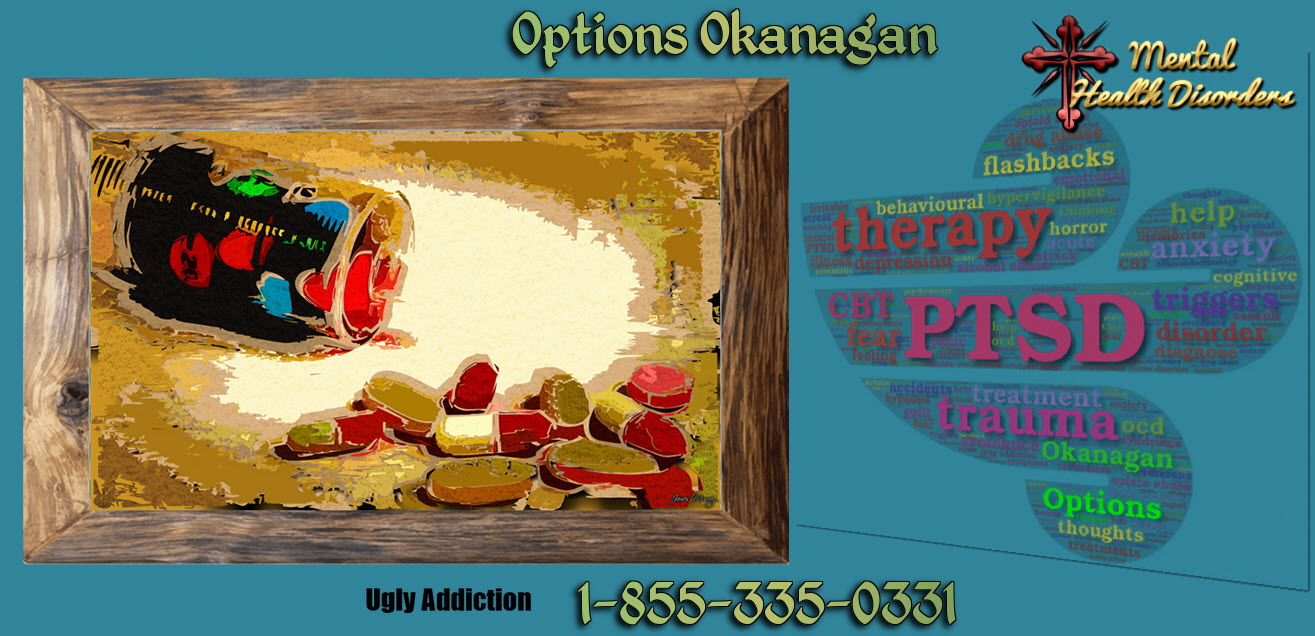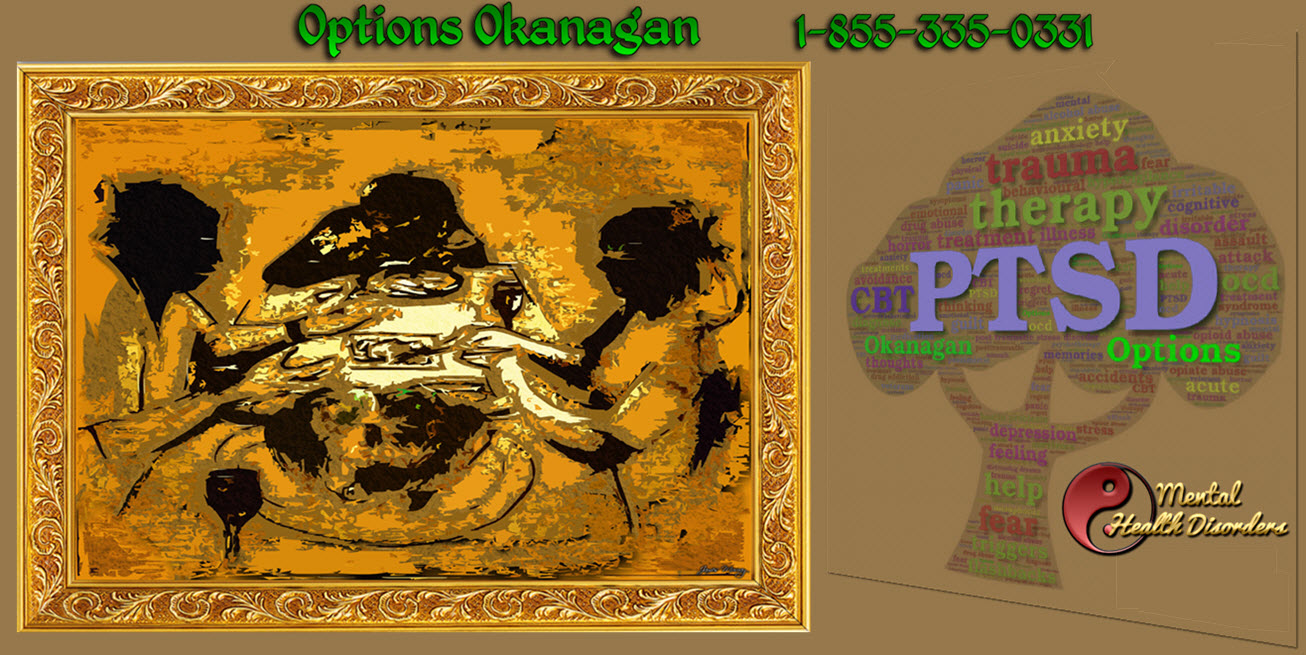The Nexus Between Drug Use, Addiction, & Stress Disorders – Mental health disorder – Opiate and prescription drug rehabilitation programs in British Columbia and Alberta – Options Treatment Center in Kelowna, British Columbia treating prescription drug, opiate, fentanyl, heroin, and alcohol addiction and recovery.
Prescription Drug Rehabs In Alberta And BC
There is a strong relationship between substance abuse, addiction and post-traumatic stress disorder (PTSD) that can sometimes complicate the treatment of an individual who is either addicted to substance abuse, has chronic stress, or a combination of both. In most instances, individuals who are faced by high levels of stress end up turning to drug use as a way of drowning their sorrows and relieving anxiety even if just for a while. Research has shown that drugs can easily decrease pleasure, increase anxiety levels, and in some cases even offer a distraction from emotions that are not pleasant.
Mental Health Disorder Programs In Alberta And BC
When an individual is stressed, the levels of gamma-aminobutyric acid (GABA) usually tend to decrease while those of adrenaline increase. The human brain usually produces GABA to act as a natural tranquilizer meaning that it usually tends to suppress the brain’s central nervous system. The effects that one feels when GABA is produced by the brain can be stimulated by certain types of drugs such as opioids, marijuana, alcohol, and benzodiazepines. Additionally, when an individual takes either of the drugs mentioned above, they usually tend to increase the production of dopamine -a ‘feel good’ hormone within the brain. However, once the drugs start wearing out the system, it is common for the user to feel moody because of the lowered level of dopamine in the brain.
Regular and repeated use of drugs usually makes it hard for the human brain to control and regulate the production of adrenaline, GABA and dopamine. Once an individual stops using drugs, the withdrawal symptoms such as depression, insomnia, anxiety, moodiness, irritability and depression can make an individual sink deeper into the use of drugs. This is usually the first step towards addiction. If one is used to consuming drugs and they are unwilling to go through the withdrawal symptoms, they can easily lose control over their use of substances and fall into addiction.
When an individual develops chronic anxiety, they can experience memory issues, problems with learning and even have trouble controlling their impulses. An individual who is experiencing stress or PTSD can end up turning to substance abuse as a coping mechanism. The regular use of controlled substances can eventually end up interfering with certain regions of the brain and also affect the production of important chemicals and hormones.
The brains of young people are not usually fully developed which means they are more likely to contract PTSD because of past trauma. Additionally, young people are also more likely to fall into addiction especially if they have been exposed to drug use earlier. Other factors which can easily make young people get PTSD or become addicts include genetics, natural biology as well as being in a stressful environment. Research shows that substance abuse, PTSD and mental health disorders tend to go hand in hand.
According to data from the Current Psychiatric Report, the genetic influence and variance in people who suffer from anxiety, panic disorders, depression and addiction tend to match around 60% similarity to people who suffer from PTSD. This means that there are certain parts of the brain that may predispose an individual to contracting PTSD especially if they have been through a traumatic situation that is also very similar to the brain parts that may make a person susceptible to addiction.
Additionally, according to the Annals of the Canada National Academy of Sciences, constant exposure to highly stressful situations can make an individual prone to becoming hooked to substance abuse as well as heighten the chances of a recovering addict falling into a relapse.
Options Okanagan Opiate and Alcohol Treatment Centers in Kelowna, Salmon Arm and Vancouver, British Columbia – Men and Women are recovering and healing from Alcohol and Drug Abuse at our treatment center here in the Okanagan right now.
Our unique and distinctive Opiate Drug and Alcohol treatment program allows men and women to come in from Calgary as well as Edmonton as we offer airport pickup.
Numerous clients come to us from Vancouver, Calgary, and Edmonton and other locations in Alberta and even other provinces for Opiate addiction treatment, heroin drug treatment, many other drugs, and alcohol addictions for rehabilitation because of the uniqueness of our treatment center.
Our (Kelowna) Alcohol and Drug Treatment Program Location:
(Not Mailing Address) – Contact Us – Web Page
For Mail Delivery :: Please contact each center for correct mailing addresses, also this location is the location of our residential treatment programs in Kelowna. Please call Toll Free 1-855-335-0331 – to contact the treatment center you are going to for the address and directions.
Options Okanagan Drug and Opiate Treatment Center
551 Sherrydale Crescent, Kelowna, British Columbia, V1V 2E6
Toll-Free Phone Number: 1-855-335-0331




